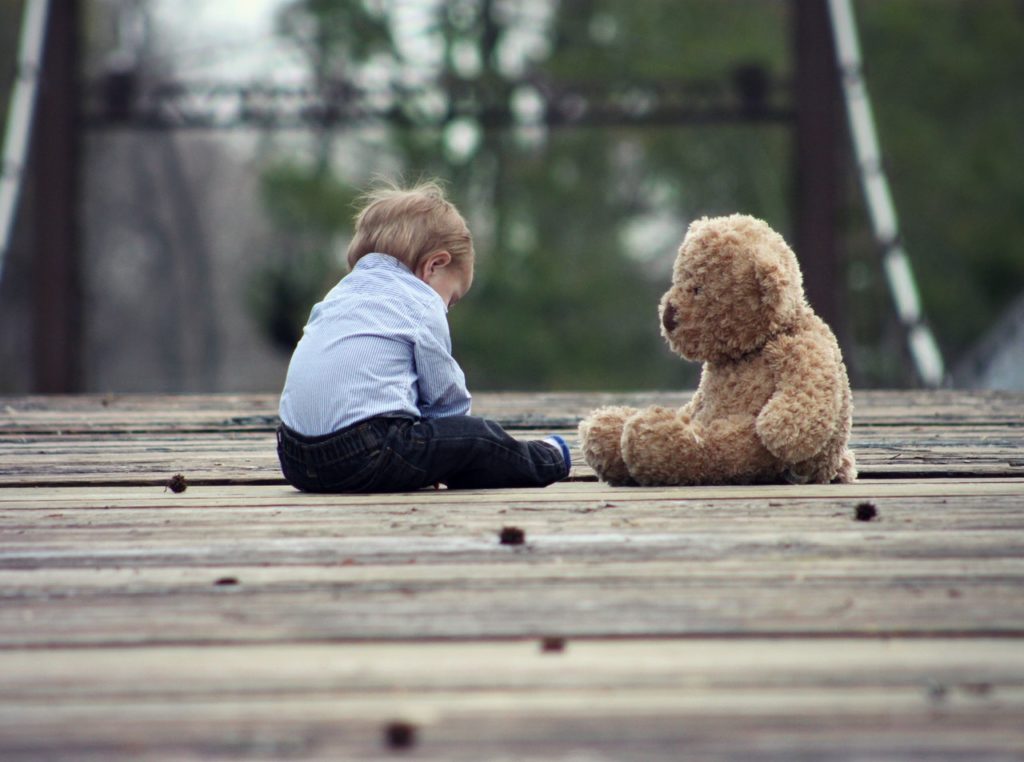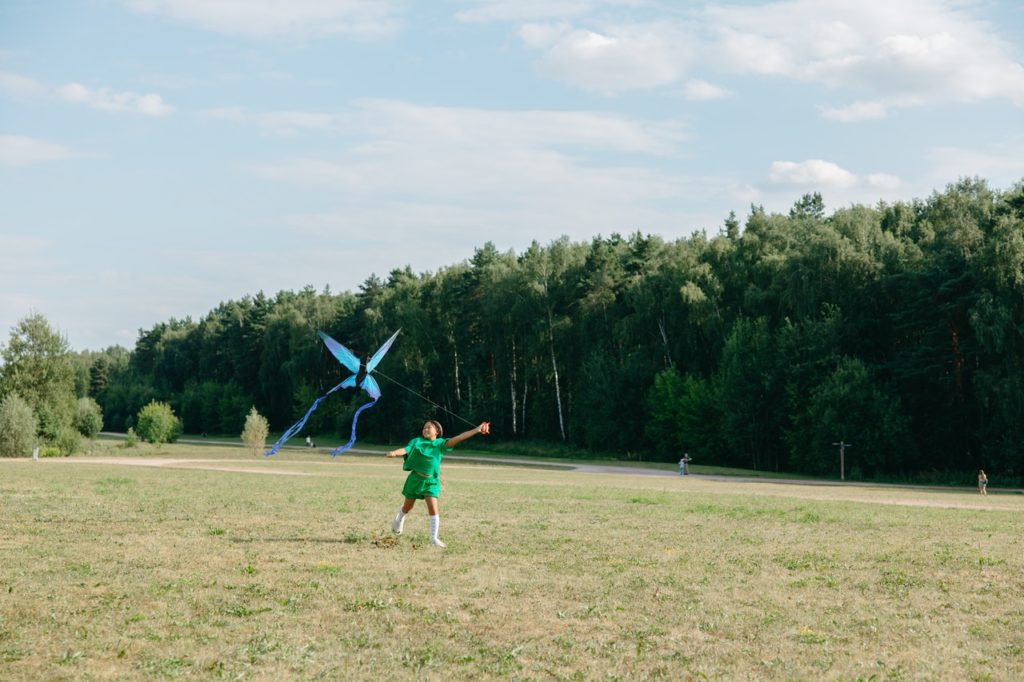Just a couple of decades ago, it was common to see children of all ages playing outside unsupervised from dawn to dusk. It was completely normal for this to take place. The question that many parents have is how young can they be to experience alone playtime. Can a 3-year-old play outside alone?
Each country has its own individual laws as to what age kids are allowed to play outdoors unsupervised, while some have no laws about the subject at all.
While “free-range parenting” has become a very controversial topic of discussion, it is important to remember that it was a normal parenting practice just one or two generations ago, and playing outside alone might hold the key to essential developmental growth for children.
What Age Can A Child Play Outside Unsupervised?
There is definitely a grey area when it comes to the age a child can play outside unsupervised. It can range from 6 to 14 depending on your state of residence. Outside of the actual restrictions set by law, there are so many other factors that should go into this decision.
The dangers facing your child when left to play alone can be seen differently depending on who is seeing them. You know your child and what they are capable of much more than a nosey neighbor or a passerby.
What seems like innocent play to a parent may look like neglect from the perspective of someone who does not know the child.
There have been many instances in which other people, seemingly concerned for the child’s wellbeing, have contacted the police or child protective services regarding young children left unattended outdoors.
These matters can lead to the removal of the child from the home and prison time for the parents, depending on the state and circumstances.
Your Child’s Level Of Personal Maturity
No two children are alike physically, mentally, or emotionally, and each will have their own level of maturity that needs to be taken into consideration on whether they are capable of handling playing unsupervised.
Is your child capable of understanding and following the rules and boundaries you set out for them? Can your child follow simple directions like “stay in the yard” and “don’t speak to strangers”?
Are they able to understand what to do in case a situation arises? Do they inform you when something happens that requires your attention? Will they know, for instance, to come inside if the weather gets bad?
At the age of 3 years old, most might not understand the rules set in place for them but some can. You as the parent will ultimately know if they are at a level of personal maturity that will make them understand the rules set in place.
Your Environment
Your environment is probably the most important factor in what level of supervision your child requires, especially at a very young age.
The overall safety of your neighborhood should be taken into great consideration, as well as if the area your child is playing in is fenced in or not. The level of safety varies between a secured and fenced-in backyard and a non-fenced front yard near the street.
Also, what elements could be in the area that could cause a dangerous situation for the child when left to play freely? Yard tools, pools, even boulders, and piles of firewood, could be hazards and should be taken as such when making the decision to let a child play alone.
At the age of 3, most children’s decision-making skills are just beginning to develop. For this reason, it is not a good idea to leave them alone in an unfenced area or an area that is out of sight from the parent.
Siblings and Playmates
Older siblings, cousins, or friends who already have a grasp on the rules of outdoor play are a great way to begin to initiate a child to play outside without parental interference.
However, it is a good idea to keep a close eye (or ear) on the situation, as not all older children will be willing or able to teach the younger child how to be independent without harming themselves.
The ability to play with one’s peers will also help the child develop independent social skills that they would not otherwise be able to develop properly. These skills will be vital to their creativity and problem-solving skills as they start preschool.
How To Get Your Child Ready To Play On Their Own
Before letting your child venture out to alone play, you need to make sure your child is equipped with the knowledge they need to succeed for short amounts of time on their own.
Having a talk about safety is key with young children. At the age of 3, this will have to be a repetitive talk that happens often and is consistent with the message. The more consistent and often it comes up, the easier it will be for the child to remember.
Make sure that the area they are playing in is: fenced in and secured, free of dangerous hazards, and within eyesight and earshot. You are going to want to check on the child every few minutes, especially at first.
You will begin to gauge how independent you can allow them to be by those first few minutes, but do not allow yourself to get caught up in something that keeps you away too long.

Importance of alone outside play
Although there are many reasons why supervised playtime is a good idea, there are also many reasons to slowly start letting your child play on their own.
When wondering if a 3-year-old can play outside alone, you need to look at the pros and cons.
1. Mental Health and Development
In order to learn the critical skill of decision-making, your child must be able to be in situations where they will have to make a decision. Whether this is just playing on the slide or in the sandbox, or “should I run and tell my parent that I scraped my knee“, these decisions, which seem minuscule to parents, are key building blocks in later, more weighted decision making.
When supervised, the child will more often than not insist on making their parent make these decisions for them.
Other skills being actively developed during the age of 3, like attention span, self-control, and risk-taking are best developed in an outdoor environment where they can explore without constantly seeking the approval of a parental figure.
2. Development of Independent Social Skills
It is no secret that children don’t act the same when they are alone or around peers as they do around their parents and other adults.
Time spent not directly supervised allows children to think freely without the influence of on-looking judgment from their parents. This can be good for their self-esteem and definitely a boost to their ability to socialize with others their own age.
It can also allow children the ability to develop personality and social traits outside of the impact of the parents’ personalities and social interaction traits. The skills and personalities of the parents can be dominating at such a young age and suppress the growth of independent characteristics.
Levels Of Supervision
What does playing alone mean? There are varying levels of supervision for children, which one is needed for both your child’s safety and their development greatly depends on your child.
While your 3-year-old may not be ready for completely unsupervised play, a safe and secured area that is visible from where you are could be very helpful to their growth.
- Make sure that the area your child is playing in is visible and accessible to you.
- Make sure there are no hazardous components where your child is playing.
- Start out with guided playtime, teaching the child to know what activities they are able to do when outside and what they are not to do.
Related: Outdoor activities for preschoolers

Final Thoughts – Can a 3-year-old play outside alone
No two children are the same when it comes to development and maturity. Setting boundaries with children, especially the young ones, are often only effective if they get the opportunity to test those boundaries.
Testing their boundaries allows them to learn to adapt and develop decision-making skills. It also teaches behavioral, emotional, and cognitive intelligence that will be essential to their success in later years.
While letting your 3-year-old play outside alone can have a positive influence on their skills, it is important to realize that each child is different and each situation is different.
The level of supervision, environment, and capability of your child will be the determining factors. Playing alone outside does not have to mean they are unsupervised.
